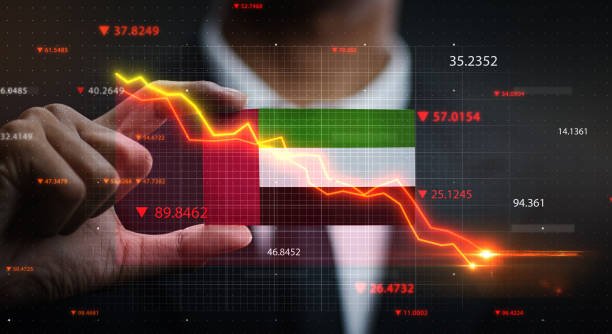The UAE real estate market stands among the world’s most dynamic, influenced not just by local conditions but also by global economic trends. From oil price fluctuations to interest rate policies and geopolitical shifts, international developments significantly impact property demand and prices across Dubai, Abu Dhabi, and other emirates.

This article examines the key global factors shaping UAE property prices and what investors should monitor in 2024 and beyond.
1. Global Interest Rates and Mortgage Costs
The UAE’s dirham peg to the U.S. dollar means Federal Reserve policies directly affect local real estate:
- Rate hikes → Higher mortgage costs → Reduced buyer demand
- Rate cuts → Cheaper loans → Increased property purchases
*2023-2024 Insight:* While Fed rate hikes slowed mortgage-driven purchases, cash buyers (particularly from Europe and Asia) maintained market stability.
2. Oil Prices and Economic Stability
Though diversifying, the UAE economy remains oil-reliant for fiscal budgets and investor confidence:
- High oil prices → Boosted infrastructure spending → Increased real estate demand
- Low oil prices → Potential economic slowdown → Cautious buyer sentiment
Recent Trend: Sustained high prices (2022-2023) drove foreign investment into luxury properties and commercial assets.
3. Foreign Investment & Geopolitical Shifts
The UAE’s tax benefits, golden visas, and safe-haven status attract global capital:
- Russian/Chinese investors: Increased activity due to geopolitical tensions
- European/Asian buyers: Seek stability amid home-market volatility
- Crypto investors: Leverage Dubai’s crypto-friendly policies for real estate deals
Hotspots: Dubai Marina, Palm Jumeirah, Downtown Dubai remain top choices for international buyers.
4. Inflation and Construction Costs
Global inflation impacts construction expenses (materials, labor), leading to:
- Higher property prices (if costs are passed to buyers)
- Project delays (if profitability declines)
Silver Lining: The UAE’s efficient supply chains help mitigate some cost pressures.
5. Tourism and Corporate Relocation
The UAE’s global hub status fuels real estate demand:
- Tourism rebound: Post-COVID surge in short-term rental demand
- Business influx: Growing corporate HQs (tech, finance) in DIFC/Business Bay drive office/residential needs
6. Currency Fluctuations
The dollar peg makes UAE property pricing sensitive to:
- Strong USD: Higher costs for EUR/INR/CNY buyers
- Weak USD: Increased affordability for foreign investors
Key Takeaway
The UAE property market responds rapidly to global economic shifts. Investors who track these trends can:
- Time purchases to market cycles
- Target high-growth sectors (luxury, commercial, short-term rentals)
- Diversify portfolios across stable and high-yield assets
By aligning strategies with these macro trends, stakeholders can maximize returns in one of the world’s most resilient real estate markets.
